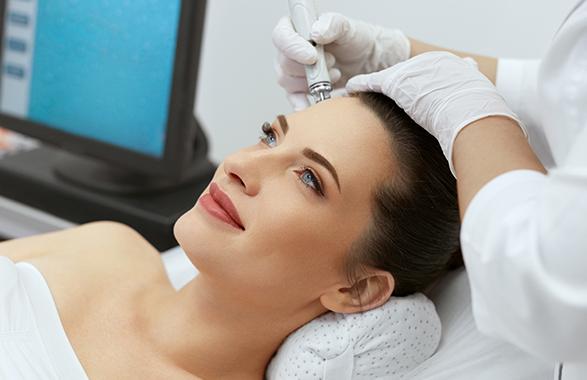As time passes, our skin often bears the brunt of aging, resulting in increased fragility, dryness, and wrinkles. However, aging gracefully is within reach with the right anti-aging skin treatments. Here are various anti-aging solutions, from skincare products to non-invasive procedures, revealing the path to maintaining youthful, radiant skin:
Exploring Anti-Aging Solutions
Aging presents various challenges for our skin, but effective anti-aging skin treatments can help us regain a youthful appearance. Among the top choices are topical creams and serums, which harness ingredients like retinol, hyaluronic acid, and vitamin C to combat fine lines, stimulate collagen, and enhance skin texture. These products, when used consistently, result in noticeable improvements in skin tone and firmness.
Non-Invasive Skin Treatments

Non-invasive procedures have also gained popularity, offering alternatives to surgery. Skin treatments like microdermabrasion, chemical peels, laser resurfacing, and ultrasound therapy stimulate collagen production, improve skin tone, and reduce fine lines and wrinkles. These non-invasive options provide safe and effective ways to achieve youthful skin without the associated surgical risks or downtime. Consulting with skincare professionals or dermatologists is recommended before starting any new treatment regimen to ensure proper assessment of individual skin needs.
Injections, including dermal fillers and Botox, are popular choices for anti-aging. Dermal fillers restore volume, smooth wrinkles, and enhance facial contours, while Botox temporarily paralyzes facial muscles to reduce wrinkles and lines. Injections offer immediate results, minimal downtime, and lower risk than surgery. It’s essential to recognize that injections are not permanent solutions, with effects lasting several months to a year. Possible side effects include allergic reactions, bruising, and temporary muscle weakness.
Consultation with a qualified professional is crucial before considering any invasive procedure, as they can assess individual needs and discuss potential risks and benefits. Skin concerns vary among individuals, so a personalized approach is essential for informed decision-making.











